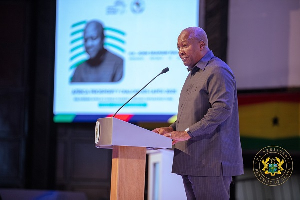Residents of Domowa in Wa West District have indicated owning household latrines has brought relief to them as the community no longer experiences sanitation related diseases or health hazards.
The practice of having a toilet in every household has mitigated several health problems associated with defecating in the open as issues of diarrheal and walking through rains into the bush to defecate and falling victims of snake bites have been completely stopped.
This followed the community members embracing the Community-Led Total Sanitation (CLTS) programme about two years ago.
Madam Abakyuura Domowa Naa, a resident, told the Ghana News Agency that: “It has a lot of benefits for us. Our children use to defecate everywhere but now they don’t”.
The CLTS is a sustainable approach to ensuring complete sanitation at the community level which involves initiating a process to inspire and empower rural communities to stop defecating in the open; they are encouraged and supported to build and use latrines within their houses.
Mr Kanizing Atigma, another resident, also said because of the benefits derived from using the household toilets those who have their toilets broken down have started rebuilding them.
“Anytime a Sanitary Inspector comes here he praises the women. We all dug the toilets in our houses and even dug soak-away pits to contain wastewater. Some of our toilets are broken but we are building them again”.
The Upper West Region, through the Regional Inter-Agency Coordinating Committee on Sanitation in consultation with the Municipal and District Assemblies, had set 2021 as the target to achieve a region-wide Open Defecation Free (ODF) status.
A number of measures have been put in place including the development of a regional ODF Plan which seeks to chart a clear path for the realisation of the objective.
Out of about 1,167 communities in Upper West, 590 communities, representing 50.6 percent, have attained ODF status with Nandom District achieving a district-wide ODF status – meaning every household in the district has a toilet facility.
The district would be the first in the country to attain this feat after it had been certified by the Ministry of Sanitation and Water Resources.
General News of Monday, 1 April 2019
Source: ghananewsagency.org

















